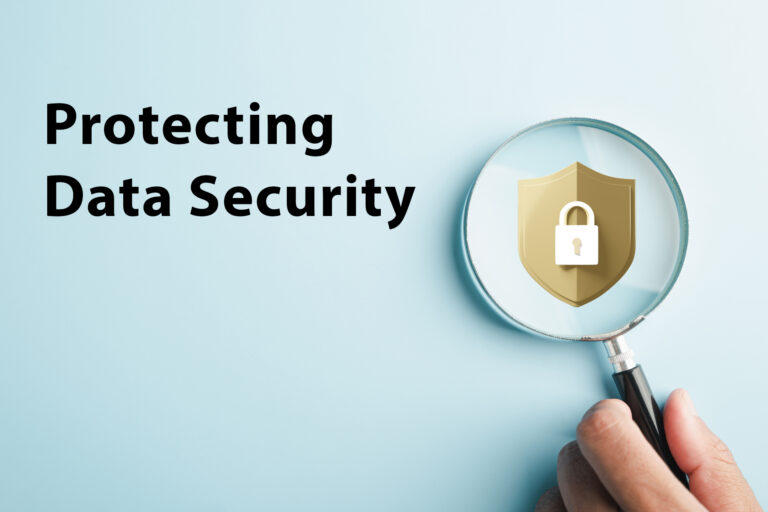Top Takeaways from the 2025 Data Breach Investigations Report
The 2025 Data Breach Investigations Report (DBIR) by Verizon delivers critical insights every cybers

Many companies face challenges in effectively prioritizing and maturing their security domains, such as Vulnerability Management, Configuration Management, Incident Response, and more. While conducting risk assessments is a common practice to understand an organization’s risk, it only sometimes provides a comprehensive understanding of the entire domain or area that needs to be matured. Companies often address only a specific item from the risk assessment, neglecting the governance and ongoing program management aspects that are crucial for reducing risks at their core. This is where a proactive approach becomes imperative, like conducting a data security gap assessment.
When it comes to cybersecurity, businesses need to go beyond reactive measures and take proactive steps to assess their data security posture. One such proactive measure is conducting a data security gap assessment. This assessment helps businesses identify areas of vulnerability, shortcomings in security controls, and gaps in practices related to specific security domains like Vulnerability Management, Business Resiliency, and Endpoint Security. By identifying these gaps, companies can focus their efforts on improving specific areas, reducing risks, and ensuring the maturity of their security program.
Comprehensive data security gap assessments cover various security aspects, including Vulnerability Management, Configuration Management, Third-Party Risk Management, Business Resiliency, Cloud Service Security, and Incident Response. These assessments provide a holistic view of the organization’s data security posture and enable business leaders to make informed decisions, allocate resources effectively, and align security initiatives with business goals. Let’s delve deeper into why prioritizing data security gap assessments is crucial for maturity and risk reduction.
Data security gap assessments allow businesses to identify and prioritize potential risks in domains such as vulnerability management, business resilience, cloud service security, configuration management, and third-party risk management. By understanding the specific risks, weaknesses, and gaps within these domains, companies can allocate resources and design effective strategies for risk reduction. The gap assessment outcome provides a prioritized list of areas to address and actionable steps to close the gaps. Businesses can bolster their overall security posture by systematically addressing these identified risks.
Organizations can determine the maturity level of their security domains by conducting a data security gap assessment. This assessment provides insights into the existing controls, policies, and procedures, allowing businesses to evaluate whether their domains are adequately matured and meet industry norms and compliance standards. Addressing gaps and areas of immaturity leads to a stronger security foundation and a more robust data protection strategy. Strengthening domain maturity lays the groundwork for comprehensive security resilience.
Data security gap assessments help businesses take a proactive approach to risk reduction. Organizations can implement necessary improvements and strengthen security by identifying potential weaknesses and gaps before a breach occurs. This proactive approach significantly reduces the likelihood and impact of security incidents, ensuring better asset protection, data, and reputation protection. Embracing proactive risk mitigation ensures readiness against evolving threats and challenges.
Businesses in regulated industries like healthcare or finance have specific data security requirements. A data security gap assessment ensures that companies meet these regulatory obligations and align with industry best practices. By demonstrating compliance, businesses can protect their reputation, avoid penalties, and build customer trust. Compliance alignment through gap assessments is a cornerstone for regulatory resilience and trust-building.
A data security gap assessment is essential for businesses aiming to mature their security domains, reduce risks, and enhance their overall cybersecurity posture. Organizations can protect their assets, data, and reputation by identifying vulnerabilities, prioritizing risks, taking a proactive approach to risk reduction, and establishing remediation action. Going beyond the typical risk assessment process and conducting a data security gap assessment enables businesses to improve their risk remediation processes, prioritize the right risks, and increase their security posture.

Brent Neal, the lead vCISO and principal advisor at Vanguard Technology Group, brings over 25 years of extensive experience in Security, IT, and GRC departments. With expertise in strategy, governance, program development, and compliance, Mr. Neal has paved the way for VTG’s comprehensive services. We specialize in providing holistic consulting, strategic planning, and tailored solutions to meet the unique security needs of various industries. Our expert guidance helps organizations establish a strong security posture, align initiatives with business objectives, and confidently navigate the evolving cybersecurity landscape.
Share our blog and spread cybersecurity knowledge!

The 2025 Data Breach Investigations Report (DBIR) by Verizon delivers critical insights every cybers
In 2023 alone, healthcare breaches exposed over 40 million patient records, underscoring the critica
Ransomware trends in 2024 reveal escalating threats, evolving attack methods, and critical lessons f
Over the past year, AI has transformed the technology and cybersecurity landscape, introducing urgen
Many companies face challenges in effectively prioritizing and maturing their security domains, such
One of the greatest cyber threats facing businesses today is ransomware, and many are uncertain abou

Security Leadership (Virtual CISO)
Program Development & Maturity
Compliance Services
Advisory & Consulting Services
© All Copyright 2023-2024 by Vanguard Technology Group